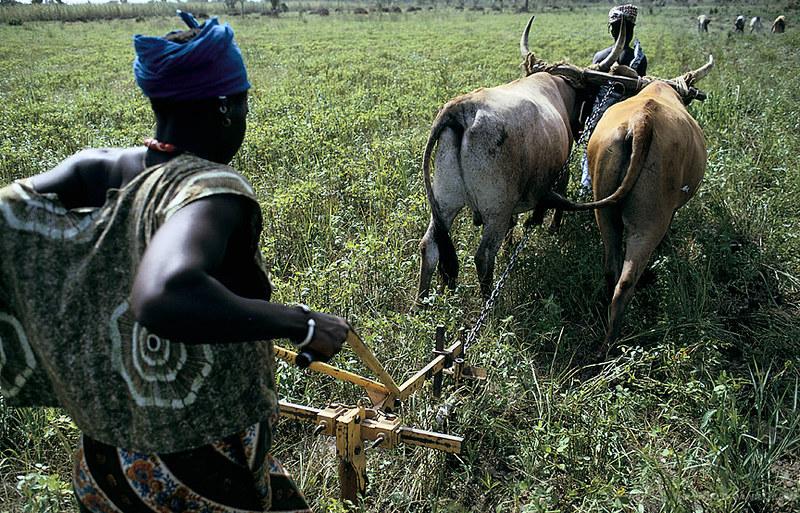Protecting Pastoralists and Building Resilient Livestock Sector

The livestock sector supports livelihoods of some 60% of rural households made up of 1.7 billion people worldwide. Currently, the World Bank has US$1.9 billion in active investments in improving livestock sector and enhancing pastoral livelihoods mostly in Africa, South Asia and Central Asia.
The Sahel region of Sub-Saharan Africa, particularly, has a strong tradition of animal rearing. Livestock sector contributes to one-third to half of agriculture GDP in many Sahelian countries such as Mali, Burkina Faso and Niger as well as Mauritania and Chad.
Despite pastoralism being a major economic pillar in Sahel, pastoralists in the drylands experience a multitude of serious challenges. According to International Livestock Research Institute (ILRI), catastrophe herd loss due to drought is identified as the major source of vulnerability and cause of poverty. Since 1970, the Sahel suffered a series of major droughts (1968-1974, 1983-1984, 2002-2003, 2005, 2009-11, 2016/17), famines, and huge livestock losses from a lack of drinking water, starvation from a lack of forage and grazing resources, and diseases. Drought is also considered one of key defining factors of localized conflicts due to reduction in grazing resources such as agricultural encroachment into rangelands and farmer-herder tension over natural resources. Climate change is likely to worsen and intensify droughts’ occurrence and severity in the region. It is imperative to increase the efficiency of coping mechanisms of affected communities against the effects of climate change.
Agriculture insurance especially indexed weather-based insurance is increasingly considered as a climate finance instrument to reduce vulnerability of agrarian communities against climate-induced production risks. Linking with mitigation measures such as animal health & nutrition, grazing management and silvopastoral systems, index-based livestock insurance (IBLI) can help develop long-term climate resilience in addition to financial resilience of pastoralists.
The availability of IBLI in Africa is very low except in Kenya and Ethiopia mainly through macro-level programs, while there is an IBLI retail insurance product sold in both countries. The insurance product usually uses satellite imagery to measure vegetation density and level of pasture to analyze the deviation in forage availability to predict livestock mortality rates. The Kenya Livestock Insurance Program (KLIP) was launched by the Government of Kenya in 2015 to protect the most vulnerable herders as a 100% subsidized social protection scheme. More than 20,000 people rearing over 100,000 livestock units have been covered to date and over Kush’s 700 million (about USD $6.5 million) payouts have been made to 32,000 pastoralists against drought. Satellite Index Insurance for Pastoralists in Ethiopia (SIIPE) program was implemented by the World Food Program (WFP) and the Regional Government of Somali Region in 2018. According to a WFP report (2019), SIIPE has provided livestock insurance to 5,001 beneficiary households in three districts of the Somali region. All the insured are also beneficiaries of Ethiopia’s Productive Safety Net Programme (PSNP) who obtain SIIPE insurance coverage in exchange for public work. At a sovereign level, during 2014-2017, Africa Risk Capacity launched four drought risk pools covering 8 countries (Burkina Faso, Gambia, Kenya, Malawi, Mali, Mauritania, Niger and Senegal) with payouts of over USD $34 million made to Member States affected by drought, supporting over 2 million people and 1 million cattle.
Given high drought risk in Sahel and reliance on pastoralism, there is a need to move from dependency on humanitarian assistance toward more proactive approaches to managing risk. GIIF in partnership with Agricultural Insurance Development Program (AIDP) and European Union's Africa Disaster Risk Financing (ADRF) is working on a feasibility analysis of a regional, pre-arranged, risk-financing solution program for livestock in the region conducted by ILRI. The aim of the project is to assess the feasibility of implementing financial protection index-based solutions against drought in the pastoral regions of four Sahelian countries - Burkina Faso, Niger, Mali, Senegal - and discussing with local stakeholders from the public and the private sector the most effective implementation modalities. An overall diagnostic report on institutional arrangement options and recommendations for establishing the risk solutions for the livestock sector along with a comprehensive feasibility report for each country will be completed in FY 2022.
